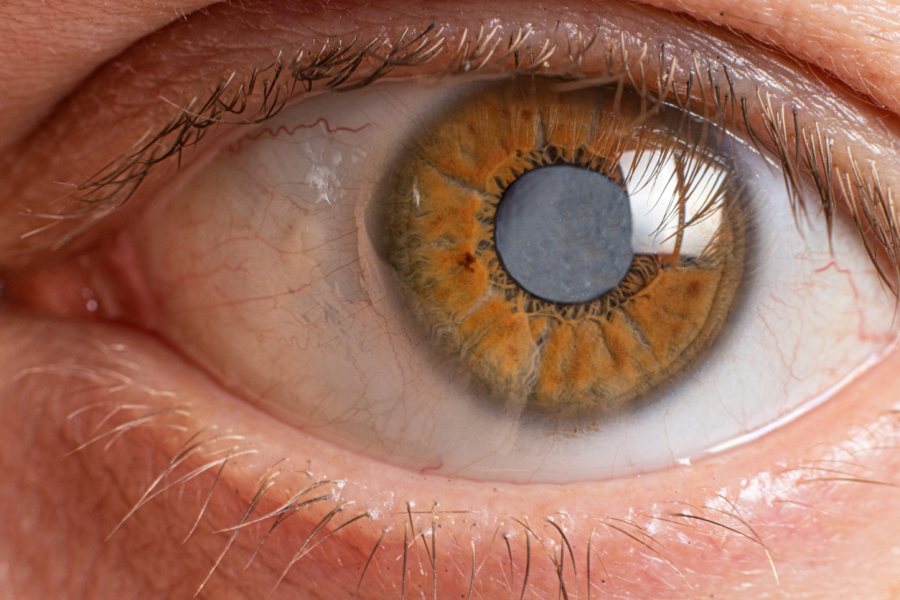SEATTLE — Adults who have undergone cataract surgery have a lower chance of developing dementia, findings that could open the door to understanding further connections between eye and brain health, a new University of Washington study reported last week.
According to the study, published in JAMA Internal Medicine, older adults who have had cataract surgery had a nearly 30 percent lower risk of developing dementia for at least 10 years after the operation, compared to those who did not.
Lead researcher Dr. Cecilia Lee, the Klorfine Family associate professor of ophthalmology at UW School of Medicine, said the findings could be crucial in learning more about the memory loss disorder that doesn’t have known treatment options or preventive methods.
Researchers know there’s a strong genetic risk factor that increases the risk of developing Alzheimer’s disease, Lee said in an interview. But she and her team found in an earlier study that for people with certain eye diseases — like age-related macular degeneration or diabetic retinopathy — their risk of developing memory loss is “as significant” as someone with the genetic risk factor.
“It wasn’t a subtle or small risk,” she said. “That gave us the foundation to really go after the connection between the aging eye and the aging brain.”
The study is part of longer-term research UW is conducting with Kaiser Permanente Washington, which contributed data from more than 5,500 patients who volunteered to participate. The patients were evaluated every two years for cognitive ability.
Of 3,038 adults over 65 years old with cataracts or glaucoma, 853 developed dementia. Of that group, 504 cases occurred before or without cataract surgery, while 320 occurred after surgery.
Researchers also evaluated those with glaucoma surgery, which does not restore vision, and found it did not have a significant association with dementia risk.
“That gave us more reassurance that the result we found is not something we picked up because people were healthy enough to have eye surgery,” Lee said. “It was more likely more specific to cataract surgery, which improves visual function.”
Lee and her team have a couple hypotheses as to why that might be.
When a person develops cataracts — a clouding of the lens that’s common in people as they age — their brains are receiving lower quality sensory input.
“We’re born with a crystal clear lens,” Lee said. “As we age, the lens becomes yellow and cloudy. … Because the lens becomes yellow, it’s almost like you’re wearing yellow sunglasses all the time.”
Those with cataracts often experience blurry vision, have difficulty seeing sharp colors, see halos around bright lights and can’t drive at night, she said.
“So, a brain that’s not getting enough visual stimuli might be at a higher risk of developing dementia because it’s losing those neuronic connections,” Lee said.
Another hypothesis, Lee said, is that after cataract surgery, people are getting more blue light, or a “better quality light that enters retinas.”
“Some special cells in the retina regulate sleep cycles and have been shown to be associated with cognition, and these cells respond well to blue light,” she said. “Cataracts specifically block blue light, and cataract surgery could reactivate those cells.”
Past studies have also shown improved vision is associated with a person being more social, exercising more and enjoying outside surroundings more — all activities shown to protect people from developing dementia.
“When your cataracts are gone, your vision improves immediately and you’re able to interact with this world better,” she added.
Because the study was observational, questions still remain before scientists can pin down the mechanisms between cataract surgery and lessened dementia risk.
The majority of all participants, for example, was white — partially because of Kaiser’s and Seattle’s patient population — so Lee said she’d like to better understand the role race and ethnicity might play in results. Because the study only looked at patients who were Kaiser members, their access to health care could reflect a certain socioeconomic group, she said.
“It could be different for different groups,” she said.
It’s also unclear if cataract surgery could have an effect on someone who has already developed dementia or memory loss.



